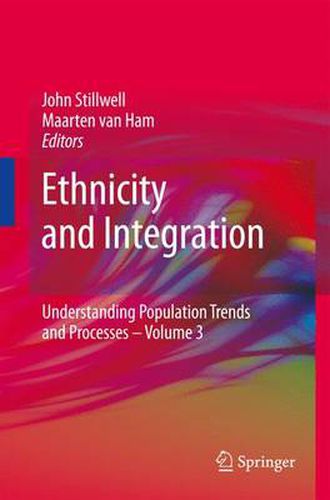Readings Newsletter
Become a Readings Member to make your shopping experience even easier.
Sign in or sign up for free!
You’re not far away from qualifying for FREE standard shipping within Australia
You’ve qualified for FREE standard shipping within Australia
The cart is loading…






This title is printed to order. This book may have been self-published. If so, we cannot guarantee the quality of the content. In the main most books will have gone through the editing process however some may not. We therefore suggest that you be aware of this before ordering this book. If in doubt check either the author or publisher’s details as we are unable to accept any returns unless they are faulty. Please contact us if you have any questions.
Robustandforensicanalysisofrelevantdatasupportedbyscienti?cmethodologies is key to challenging contemporary debates around the use and abuse of race statistics.Controversiessurroundingthecollection,interpretationanduseofrace, ethnicityandethnicgroupdatahavealonghistory.BeingrootedinEugenics,this area of study has sparked intense reactions over the years. The abuse of ‘race’ statisticsisnotonlyapparentduringtimesofuncertaintybuthasbeenentrenchedin social policies and political discourses in Britain since the 1950s. The collection of research studies in this book is therefore much needed and timely, not least becauseofrecentdebatessurroundingthenatureandinteractionsofminorityethnic populationsinBritain. The numbers game is not new in British political discourses but took a nasty turnpost9/11andpeakedpost7/7 withdiversitybeingnegativelyassociatedwith concernsinrelationtopopulationsegregation,communitycon?ictsandterrorism. This book effectively debunks several myths and misinterpretions pertaining to populationdiversity,spatialdensityandthenatureofsocialrelationshipsbetween minority and majority groups. More importantly, armed with scienti?c evidence, it challenges the claim that spatial segregation along ethnic and racial lines is necessarily an indication of community tensions, social fragmentation and communitycon? icts. Despite the obvious bene?ts of valid and reliable data on population diversity for understanding social change and improving social conditions, there was little appetiteonthepartoftheBritishGovernmenttoformallycollectnationalstatistics onethnicityuntil1991.Notwithstandingthis,thechaptersinthisbookdemonstrate thatdatafromthe1991and2001Censusescan,despitetheirlimitations,provide Kay Hampton (BA Hons, MA, PhD, FRSA, FHEA) is Professor in Communities and Race Relations at the Glasgow Caledonian University. She was Chair, Deputy Chair and Scottish Commissioner on the Commission for Racial Equality (2003-2007) and Commissioner on the EqualityandHumanRightsCommission(2006-2009).SheiscurrentlyaCommissionerforthe ScottishHumanRightsCommission. 1 ThebombingsoftheTwinTowersinNewYorkon9September2001andtheLondonbombings on7July2005. v vi Foreword useful baseline statistics for conducting in-depth, analytical studies in contested areasof'race'andethnicity.
$9.00 standard shipping within Australia
FREE standard shipping within Australia for orders over $100.00
Express & International shipping calculated at checkout
This title is printed to order. This book may have been self-published. If so, we cannot guarantee the quality of the content. In the main most books will have gone through the editing process however some may not. We therefore suggest that you be aware of this before ordering this book. If in doubt check either the author or publisher’s details as we are unable to accept any returns unless they are faulty. Please contact us if you have any questions.
Robustandforensicanalysisofrelevantdatasupportedbyscienti?cmethodologies is key to challenging contemporary debates around the use and abuse of race statistics.Controversiessurroundingthecollection,interpretationanduseofrace, ethnicityandethnicgroupdatahavealonghistory.BeingrootedinEugenics,this area of study has sparked intense reactions over the years. The abuse of ‘race’ statisticsisnotonlyapparentduringtimesofuncertaintybuthasbeenentrenchedin social policies and political discourses in Britain since the 1950s. The collection of research studies in this book is therefore much needed and timely, not least becauseofrecentdebatessurroundingthenatureandinteractionsofminorityethnic populationsinBritain. The numbers game is not new in British political discourses but took a nasty turnpost9/11andpeakedpost7/7 withdiversitybeingnegativelyassociatedwith concernsinrelationtopopulationsegregation,communitycon?ictsandterrorism. This book effectively debunks several myths and misinterpretions pertaining to populationdiversity,spatialdensityandthenatureofsocialrelationshipsbetween minority and majority groups. More importantly, armed with scienti?c evidence, it challenges the claim that spatial segregation along ethnic and racial lines is necessarily an indication of community tensions, social fragmentation and communitycon? icts. Despite the obvious bene?ts of valid and reliable data on population diversity for understanding social change and improving social conditions, there was little appetiteonthepartoftheBritishGovernmenttoformallycollectnationalstatistics onethnicityuntil1991.Notwithstandingthis,thechaptersinthisbookdemonstrate thatdatafromthe1991and2001Censusescan,despitetheirlimitations,provide Kay Hampton (BA Hons, MA, PhD, FRSA, FHEA) is Professor in Communities and Race Relations at the Glasgow Caledonian University. She was Chair, Deputy Chair and Scottish Commissioner on the Commission for Racial Equality (2003-2007) and Commissioner on the EqualityandHumanRightsCommission(2006-2009).SheiscurrentlyaCommissionerforthe ScottishHumanRightsCommission. 1 ThebombingsoftheTwinTowersinNewYorkon9September2001andtheLondonbombings on7July2005. v vi Foreword useful baseline statistics for conducting in-depth, analytical studies in contested areasof'race'andethnicity.